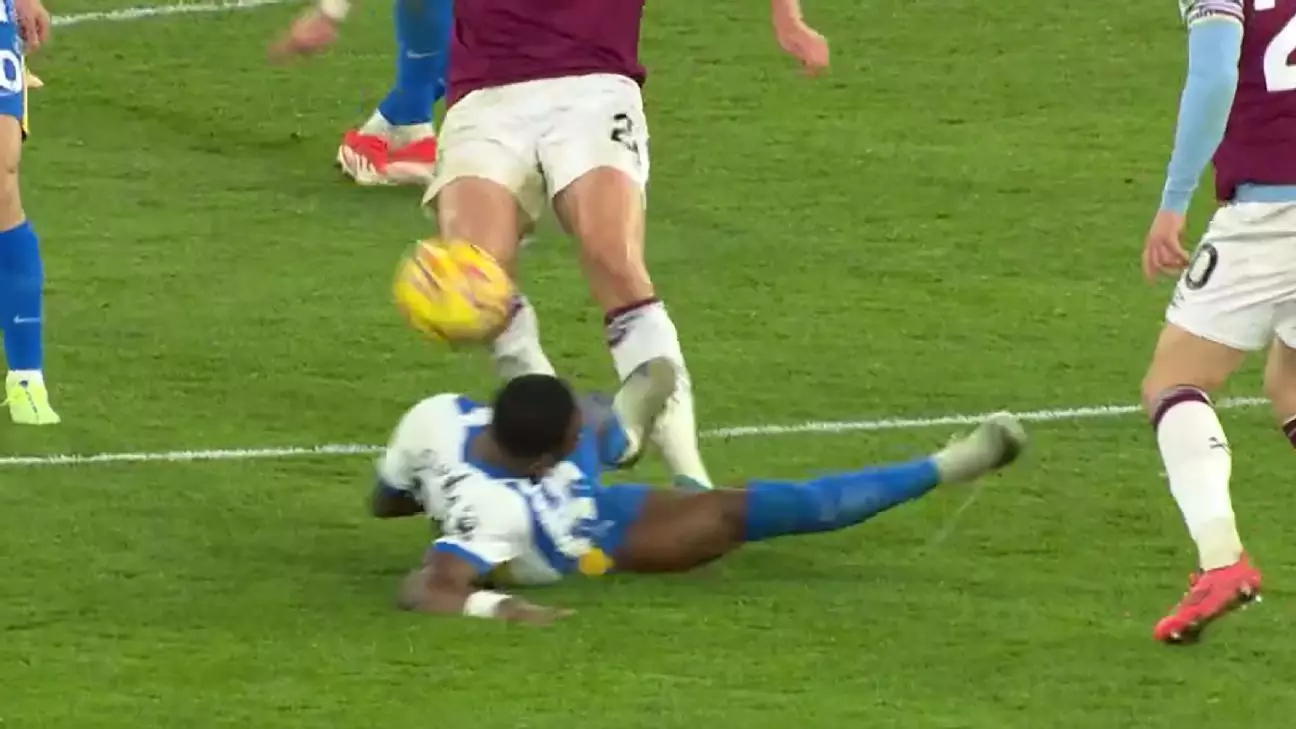The implementation of the Video Assistant Referee (VAR) in the Premier League has proven to be a double-edged sword, consistently igniting debates over its effectiveness. As controversies unfold nearly every matchday, it raises the critical question: How are these decisions made, and do they adhere to the established football laws? In this article, we will explore specific incidents and the overarching implications of VAR decisions, shedding light on the contentious introduction of technology into the traditional realm of officiating.
The Nature of VAR Decisions
VAR was introduced to help rectify clear and obvious errors made by match officials, especially concerning key match incidents. However, several recent examples illustrate that the application of VAR rarely meets the expectations set forth at its inception. The controversial yellow card issued to Brighton’s Pervis Estupiñán during a match against West Ham serves as a poignant case study. In the 84th minute, Estupiñán’s challenge on Max Kilman appeared reckless and potent enough to warrant a red card in the eyes of many observers. Nevertheless, VAR operator Paul Tierney upheld the decision for a yellow card.
This incident encapsulates a recurring issue: discrepancies arise in interpreting serious foul play. The recent Premier League season has spotlighted multiple mistakes regarding this foul type, with many fans asserting that the number of overlooked incidents should be significantly higher. For instance, Manchester United’s Bruno Fernandes received a red card in a match against Tottenham, which was later overturned upon appeal due to insufficient VAR intervention.
In soccer, officiating is inherently subjective, and the distinction between a yellow and red card can often land in a gray area. Referees must consider the force, intent, and impact of a challenge, elements that can be obscured from their live view but can appear much clearer on playback. In the case of Estupiñán’s foul, both the on-field referee and VAR missed the gravity of the challenge, hinting at a systemic issue—VAR officials themselves struggle to assess when a clear error has occurred regarding serious foul play.
One must also consider the Premier League’s cultural inclination towards physicality. Many marginal challenges that might merit serious scrutiny in other leagues are often interpreted lightly in England. Examples abound, such as recent encounters involving Chelsea’s Moisés Caicedo and Manchester United’s Lisandro Martínez, where challenges were deemed acceptable even though they raised eyebrows among fans.
The case of Everton’s goalkeeper Jordan Pickford against Chelsea further complicates this discussion. During a chaotic set piece, Pickford charged toward Malo Gusto, leading to a collision. Surprisingly, referee Chris Kavanagh ruled this incident as a normal footballing challenge, with VAR Graham Scott siding with him. While it is true that goalkeepers are granted leeway during such moments, Pickford’s reckless approach appeared beyond what the rules permit. Echoes of past incidents, particularly the significant injury inflicted on Liverpool’s Virgil van Dijk, raise concerns over whether the standards for goalkeepers are too lenient.
Kavanagh and Scott again showcased the hesitation among match officials to intervene when warranted. The lack of a penalty awarded highlighted a disconnect between the letter of the law and practical enforcement, ultimately protecting a player following a reckless challenge. Such situations beg the question: Are we witnessing an uneven application of VAR, where specific individuals or positional players (like goalkeepers) benefit disproportionately?
The multiplicity of missed interventions this season—counting Estupiñán and Pickford among them—illustrates a concerning trend within the application of VAR rules. The Premier League’s Key Match Incidents Panel has documented a growing number of errors related to serious foul play, signaling the persistence of guiding principles that do not appear to be effectively applied.
Fans consistently express frustration over perceived injustices, and players too are increasingly vocal about their grievances. These missed calls do not merely impact match outcomes; they shape narratives surrounding clubs and players, often perpetuating a cycle of distrust towards officiating in English football.
A critical reassessment is needed regarding VAR’s implementation and its impact on the game. As evidenced by recent cases, errors in officiating do not solely stem from the referees on the pitch but are often compounded by the VAR’s decision-making process. It is imperative for the Premier League to refine its VAR protocol to ensure a fairer playing field, striving for accuracy and consistency rather than merely aiming for speed. The role of VAR should not be to complicate the game further, but rather to uphold its integrity, allowing fans, players, and officials to place their trust in a system designed to preserve the spirit of football.

